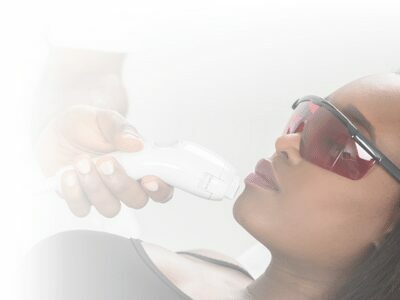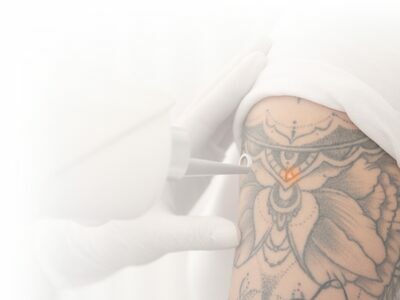The UK’s leading aesthetic
and dermatology clinics
Treatment with doctors,
consultants and nurse prescribers
Unrivalled clinical and
safety standards
Regulated by the Care Quality Commission
Pricing
Lip and dermal filler: prices start from £199.
To secure an appointment, your credit or debit card details will be secured against your booking. For free consultations, this is £25 with a practitioner or £50 for acne or injectables consultations. For all other chargeable consultations, appointments, test patches and reviews, please refer to our payment protection and cancellation policies for more information.
| Consultations from |
Free*
|
| Treatment | Single Treatment From | |
| 1 area | £150.00 |
£150.00
|
| 2 areas | £230.00 |
£230.00
|
| 3 areas | £250.00 |
£250.00
|
The sk:n promise
Our mission to deliver confidence through better skin is at the heart of everything we do. Our promise to you:
- Award-winning, unrivalled medical expertise. No one has more consultants, doctors and clinical expertise than sk:n, so no other dermatology provider comes close.
- Outstanding approach to client care for over 30 years. We’ve consistently delivered unrivalled, personalised client care, that’s always right for our clients. If you have a concern, you can trust us to solve it.
- Standards you can trust. Our market-leading medical, safety and training protocols and strict industry regulation means you can trust that your safety and care is our priority.
- We are the UK’s leading skin clinics. We’ve treated millions of clients, improving their self-confidence for the better – with some life-changing results.
Request a callback
One of our friendly sk:n advisors will call you to book your consultation.
- More than 450 consultants, doctors, nurses and medical practitioners
- Regulated by the Care Quality Commission, Health Inspectorate Wales and Health Improvement Scotland
- Partner of the NHS
- Rated excellent by our clients on Trustpilot
- Strict safety and care protocols
Frequently asked questions
How can I prevent wrinkles?
Ageing skin is a part of life, but there are some measures we can take to help slow the process down, such as:
- Wear a high factor sunscreen daily, even in winter or when inside
- Wear a wide-brimmed sun hat and sunglasses.
- Use skincare products containing anti-ageing ingredients such as peptides and vitamin A.
- Avoid smoking.
- Invest in professional skin treatments which stimulate collagen production.
How do I get rid of wrinkles?
Wrinkles, though inevitable, needn’t be permanent. There are a number of professional non-surgical skin treatments designed to address fine lines and wrinkles, sagging skin or volume loss. Such treatments are designed to actively remodel skin, stimulate collagen and elastic productions, improve skin laxity and texture or plump for a more youthful look. Some of our favourites include laser resurfacing, anti-ageing injectables, microneedling, skin tightening and chemical peels.
What are the best skincare ingredients for wrinkles?
There are many skincare products designed to help combat the signs of ageing. Effective anti-ageing ingredients you should look out for include:
- Hyaluronic acid – helps to maintain skin’s hydration
- Retinol – a form of vitamin A which helps address the signs of ageing
- Alpha-hydroxy Acids (AHAs) – an effective exfoliant
- Vitamins C and E – antioxidants for fighting free radicals
Book a consultation and our skin experts can help to advise the best products for your skin type.
How can I prevent forehead lines?
Keeping your skin protected from the sun and ageing blue light emitted from your devices is the best prevention for ageing skin. Wear a wide-brimmed hat and plenty of high factor sunscreen to block out harmful UV rays; this will help to preserve your skin’s natural collagen supplies for longer. You can also book a consultation with a doctor if you have concerns, and they will prescribe the appropriate treatment plan for you.
What’s the best way to get rid of forehead lines?
The most appropriate method of treating forehead lines and wrinkles is determined by the cause of the lines you have: Lines caused by muscle movement (such as when you smile, squint or frown) are known as dynamic lines. Lines which are present at all times, even when you are not moving your facial muscles, are called static lines. Book a consultation at sk:n so we can discuss your concerns and goals and recommend the right course of treatment. Your plan could include skin treatments like microneedling and chemical peels with a practitioner, or anti-ageing injectables and laser resurfacing with a doctor.
When do forehead lines start to appear?
You may begin to notice the first signs of forehead lines in your late twenties and early thirties as faint lines begin to appear. With time, these lines gradually deepen and become increasingly more prominent until they are visible even when you aren’t raising your eyebrows or frowning. Although age makes them worse, some people have forehead lines before they experience any other signs of ageing skin.
How can I prevent laughter lines?
The best way to postpone the appearance of laughter lines is to use a high factor sunscreen to protect your skin from harmful UV rays – ideally one that blocks out ageing high energy visible light (blue light) too. Avoid smoking, drink plenty of water and follow a good skincare routine, particularly one with a deep-acting serum or moisturiser containing anti-ageing ingredients such as peptides and vitamin A.
Can you get laughter lines as a teenager?
Yes. Some people develop laughter lines at a young age, or have them most of their life. This isn’t necessarily due to ageing skin and is usually just a natural or genetic characteristic. Laughter lines aren’t exclusive to mature skin types and might just be part of what makes you unique – like dimples in your cheeks.
At what age do you get laughter lines?
Most people begin to see the first signs of ageing skin in their 30s, but this can vary due to lifestyle and genetic factors. Deeper-set wrinkles like laughter lines and crow’s feet usually appear when we get into our 40s. Smoking and sun exposure speed the skin-ageing process up, so if you want to keep your skin looking younger for longer, avoid.



